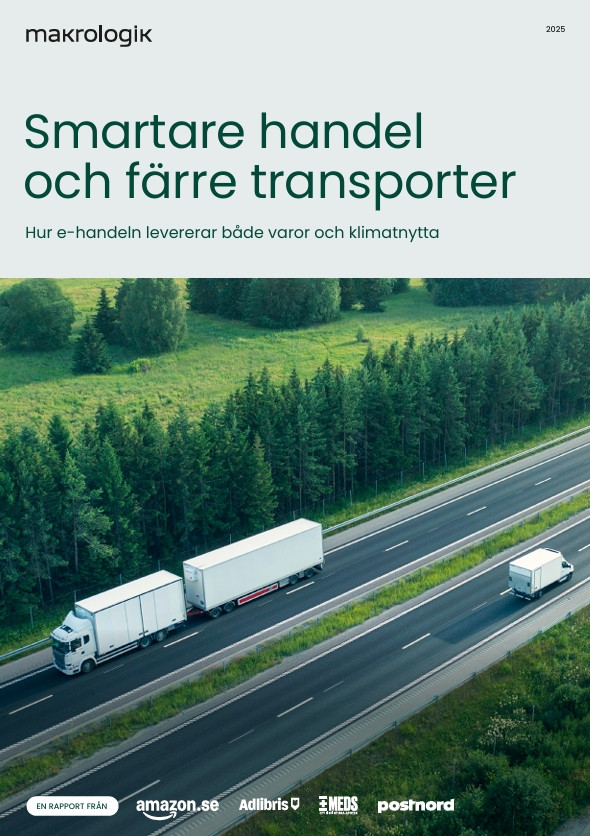Bifogade filer
Prenumeration

MEDS, together with Amazon, Adlibris, and PostNord, has produced a new report showing that e-commerce can be a more climate-efficient alternative to shopping in physical stores. Emissions from e-commerce are reduced by up to 88 percent on average, thanks to more efficient deliveries, reduced car dependency, and more consolidated purchases. At the same time, a significant gap remains between consumers' perceptions and the actual climate impact of e-commerce.
The report shows that e-commerce has the potential to significantly reduce greenhouse gas emissions. When goods are delivered directly to the home instead of the consumer driving to the store by car, carbon dioxide emissions are reduced by an average of 81-88 percent. The most significant climate benefit is achieved with home delivery, where shared transport replaces a large number of individual car journeys. Deliveries to agents and parcel lockers also have positive effects, as the distance to these locations is usually shorter than to the nearest store.
Despite the clear environmental benefits, the survey shows that consumers' perceptions often differ from reality. Over 60 percent say they would shop more online if they knew it was better for the climate. This indicates a clear perception gap, where the public's view of e-commerce's climate impact does not reflect the actual effect.
”We are glad to have had the opportunity to contribute to this report together with Amazon, Adlibris, and PostNord. It is an important collaboration that helps to nuance the picture of e-commerce's climate impact. The results show that well-organised e-commerce, especially with home delivery, is not only convenient for consumers but also has significant environmental benefits. It is clear that sustainability and e-commerce can go hand in hand.”, says Björn Thorngren, CEO at MEDS.
The climate benefits of e-commerce are highlighted by the fact that cars are the dominant mode of transport for consumers when making physical purchases, especially outside metropolitan areas. Passenger cars are often powered by fossil fuels, which means a high climate footprint, while fossil-free solutions increasingly power e-commerce logistics chains. In addition, e-commerce allows more purchases to be grouped into a single order, reducing the need for multiple trips to the store and leading to more efficient transport.
The study is based on data from the participating companies and three nationwide surveys on Swedish households' shopping trips, and has been produced by the analysis company Makrologik. Swedish e-commerce continues to grow, making it increasingly important to understand its impact on transport and climate emissions. The results show a clear need for greater consumer awareness of the climate benefits of e-commerce, with both industry players and decision-makers playing an important role in highlighting the role of e-commerce in the transition to more sustainable consumption and transport patterns.
